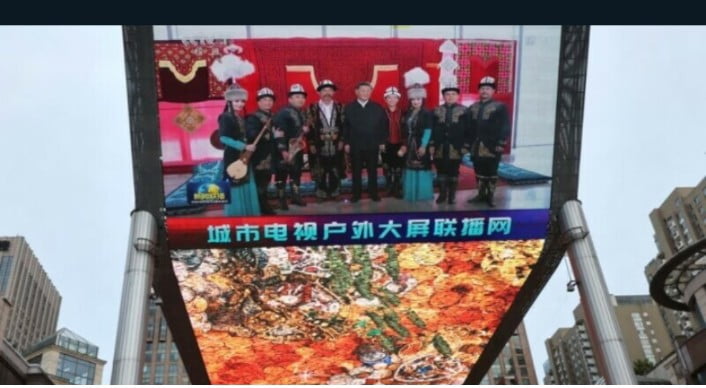AFP
Chinese President Xi Jinping embarked on a notable visit to Xinjiang, as reported by state media, urging officials to uphold “hard-won social stability” in a region marred by accusations of severe human rights abuses. Xinjiang has been a focal point of Beijing’s protracted campaign against perceived terrorism and Islamic extremism, resulting in the internment of Uyghurs and other Muslim populations.
In a region where the United Nations flagged potential “crimes against humanity” last year and where allegations of “genocide” have been leveled by the United States and other international entities, President Xi’s visit assumes significance. State broadcaster CCTV disclosed that Xi’s itinerary included a visit to Urumqi, the capital of Xinjiang, where he reviewed a government work report and conveyed a speech extolling the achievements in the region’s diverse endeavors.
This visit marks Xi’s first public appearance in Xinjiang since July of the preceding year, when he undertook his initial trip after the intensification of the crackdown in the region. Stressing the paramount importance of sustaining social stability, Xi articulated the need to harmonize efforts in combating terrorism and separatism with the broader goal of normalizing social stability and rule of law.
Xi’s directives also encompassed promoting the “Sinicisation of Islam” and exercising control over illicit religious activities. Acknowledging adversities, he underscored the significance of safeguarding hard-won social stability within the trajectory of China’s unique modernization process.
Human rights advocates, international researchers, and the Uyghur diaspora have leveled grave allegations against China, accusing the nation of perpetrating a range of abuses in Xinjiang. These include detentions of over a million Muslims in extralegal facilities, forced labor, forced sterilization, political indoctrination, and cultural and religious site destruction.
China vehemently rebuffs these claims, characterizing the facilities as vocational and voluntary training centers. The Chinese government contends that the allegations are part of an orchestrated attempt to malign the nation’s image and curb its ascent on the global stage.
During his address, President Xi highlighted the imperative of “strengthening positive publicity” to showcase Xinjiang’s newfound atmosphere of openness and self-assurance. Concurrently, he called for countering erroneous public opinions and detrimental narratives, as reported by CCTV.
As the international community monitors these developments, the delicate balance between security concerns and the protection of human rights remains a central point of contention. China’s efforts to shape the narrative around Xinjiang, coupled with President Xi’s visit, underscore the intricate web of challenges surrounding the region’s geopolitical dynamics.







